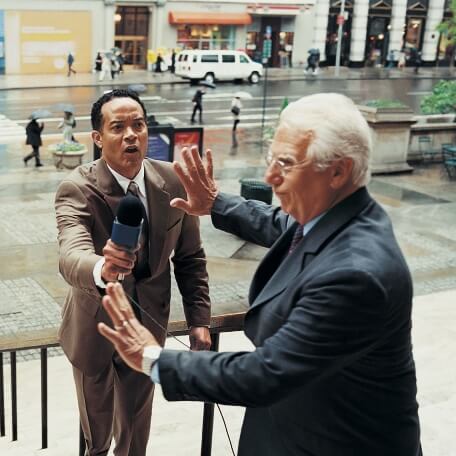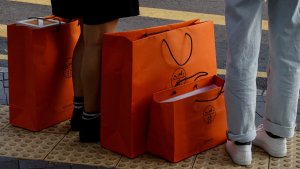Quarter8 is tapping in to China's huge consumer market by connecting British brands directly with people who want to buy.
Quarter8: Matching UK Brands To Buyers In China
Quarter8 is tapping in to China's huge consumer market by connecting British brands directly with people who want to buy.

Singles Day on 11 November is the world’s biggest shopping event. But China’s ballooning middle class means demand for consumer goods is strengthening year-round. We ask Jian Goh, co-founder and CEO of Quarter8, how he is helping British businesses gain access to this global mega-market.
What’s Quarter8 all about?
Quarter8 is a website connecting UK brands with consumers in China. There is strong appetite for products made in Britain over there, but the cultural, legal and linguistic differences deter many British businesses from selling in China. There is simply too much legwork.
Our clients don’t have to go through the process themselves. Quarter8 is a safe online marketplace in which British businesses can sell direct to Chinese consumers without the hassle.
Describe the market for your business
China’s recent history has been characterised by rapid economic growth. This has been happening for decades. Recently growth has slowed, but the economy is transformed with millions of people moving from the countryside into the big cities to join the growing middle class.
China was known as the “factory of the world” for decades. It created so much wealth that the country is now a major global consumer – obviously meaning demand for consumer goods is high.
What’s so good about British brands and products?
There are two main reasons for this demand. One is quite well known: that British companies have a strong reputation around the world. International buyers love the history and heritage of famous British brands and they want to be a part of it.
The other reason is perhaps less immediately obvious. Britain, along with other developed economies, has high standards of quality control. Products must meet stringent tests to ensure they are safe and authorities act quickly when they hear about fraudulent copies, especially if these pose a risk to the public.
In China, the counterfeit economy is massive and fake goods have flooded the market. The problem is deeply entrenched and it has caused a series of scandals.
Those who can afford it will buy as much as they can from foreign sources that they can trust. Tourists will come to the UK and shop just as zealously in Boots as they do in Burberry.
How did you set the business up?
I launched a digital marketing consultancy called Chinadvisor and the idea was to help small and medium-sized businesses market their goods in China. It was clear they had an appetite to do it but in so many cases they didn’t have the money to spend on the set-up costs.
China is complicated. It’s a different world. It’s not just language and culture, the whole digital landscape is completely different too because so many big sites from the West are restricted.
I realised I couldn’t bring individual brands to China one at a time, but if I could bring the businesses together and market them on a single website, like a virtual British farmers’ market, I could save everyone time and money. I sat down with my co-founders John and Vivian and the more we looked at it the more we loved the idea.
Just over a year ago we started building the website and recruiting brands to join our platform. It has been a bit chicken and egg because we needed enough brands to launch the site, so it took a bit of time and effort.
In April this year Quarter8 went live and we started selling.
How did you decide which brands to target?
We literally started by searching for anything that is made in the UK. Then we narrowed it down to what suited demand in China; then it narrowed again to businesses that share our direction and vision.
We have learned a lot already, by putting brands out there we understood more about what works in the Chinese market and what doesn’t. When they come on board we advise the brands on what is suitable for the Chinese market, we do the translation for them and all the site marketing.
Most of the brands are unknown in China. That’s a challenge but also the beauty of our business. We are selling something very different from the big-selling platforms operating in the country.
What problems have you come up against?
In China things happen very quickly. Take regulation for example: in the UK the government announces an idea for change, it consults, debates it in Parliament, amends it and gets it approved. It goes through the Lords and then a timetable – often years – is set before it is introduced, usually in easy to swallow stages.
In China it happens very quickly. They announce it and change it. This can obviously be very disruptive to businesses. Intellectual property challenges are different too. There are IP squatters who register trademarks and domains in the hope someone will want to buy them. It can cause delays.
How are you funding your expansion?
We have launched a crowdfunding campaign on Seedrs where we aim to raise at least £100,000 to fund the roll-out of the business. This will go towards marketing the service in China and attracting new and exciting businesses in Britain to join our platform.
When we have done our marketing strategically in the past we have seen a direct impact on sales, so we are keen to do a lot more in future.
We opted for crowdfunding because, as a young company, it’s great that launching a campaign puts you in front of lots of people, not just investors but the type of people we want to know about us. It’s a great advertising channel for early-stage businesses as well as a source of funding.
It helps boost our standing in China too. Raising money through a reputable channel adds an extra layer of authenticity to our business in the eyes of Chinese consumers. They are looking for quality guarantees, so we want to provide as many as possible.
We just need to tell the world, that is what the crowdfunding is for. After we raise the money a lot more people will know about us and a lot more will be buying from us.
Where do you want to take Quarter8 ultimately?
Our vision is to become a hub for all things British, not just British consumer goods but anything that people want to buy or experience in the UK. It could be British professional services, design or holidays with a distinctly British feel. There’s a lot to promote in this country.
If it works, we could conceivably move on to different countries such as France, Italy and Germany, selling their unique qualities to the world. So we are building a huge potential market for China to buy across Europe. That’s quite a way down the line, but if Quarter8 grows as we expect, the world will be our oyster!
Thanks for signing up to Minutehack alerts.
Brilliant editorials heading your way soon.
Okay, Thanks!





